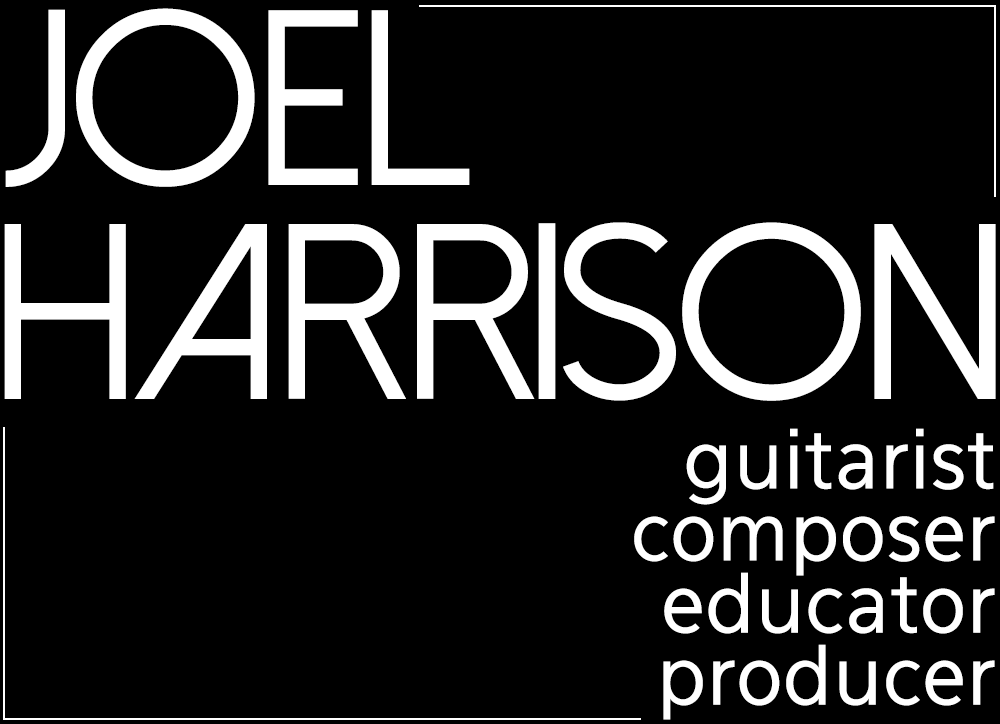Tuesday was the release date for my latest cd, a collaboration with sarodist Anupam Shobhakar. We call our group Multiplicity, and the name of the cd is Leave the Door Open.
There have been some great responses so far. However, after reading some of the responses I felt compelled to offer my own insight– as an insider– about what really makes this album unique. Sure my opinion is biased but this has been a fascinating 3 year journey. Perhaps these thoughts will allow the listener a more clear view of our goals and process.
In almost every instance you can find, a musical work between people of radically different cultures has been a surface-level collaboration. Ours goes much deeper. When a Western composer approaches a traditional Indian or African musician to make music, the prevalent scenario is that the Westerner creates a musical setting where the traditional player can “plug in”, and simply “do what he does best.” This is particularly true with older musicians. You can only modify the setting, the backdrop, not their approach. When Ali Akbar Khan worked with saxophonist John Handy in the 60’s, Khansahib didn’t change what he did. He still played gorgeous, blazing improvs over a drone. When Ry Cooder made “A Meeting By The River”, he and Vishwa Mohan Bhatt did not sit down for a year and work out a plan. They jammed for four hours (with enchanting results).
Anupam and I did the opposite. We spent countless hours working together, two years on and off, trying to find as many ways as possible to truly unite our backgrounds compositionally as well as improvisationally. This involved a lot of bending for both of us, a deliciously rewarding, and extremely challenging process. Anupam was not interested in simply “jamming” over a drone. He wanted to integrate as fully as possible into the rhythmic, harmonic, and formal approach of an American jazz group. And I wanted to write and play in a way that opened more deeply to the Indian musical system. My work reflected all those hours spent with Anupam and his tradition, searching for new rhythmic patterns, using new scales, working on my slide playing to more closely emulate the sarode. Anupam added chord changes to his pieces, developed the ability to solo over complex harmony, learned to work with a jazz drummer in soloing. Jazz players and Indian musicians really do approach solos and rhythm in very different ways. It takes a lot of work to bend so that you can make that bridge.
It is no wonder that older musicians do not want to bend like this. They have their lives. They are who they are. But now a younger generation is entering the scene. Now people like Anupam are simultaneously learning the heroic and vast music of their native land AND listening to and studying jazz, rock, and classical music. This process is literally what makes music grow. For a while we Westerners have had the disposition of being open to other cultures. Now other cultures are doing so in greater numbers. The result is, for instance, what I consider a truly innovative composition on our cd by Anupam, the title track, Multiplicity. In that piece you hear distorted, looped, processed electric guitar, virtuosic Khyal singing from a well-respected Bombay singer, shifting harmony underneath the mesmerizing “todi” raga, a righteous piano solo by Gary Versace over changes built on that raga, and a blazing sarode and tabla solo, with guitar and bass accompaniment, PLUS some ass-kicking unison passages (or taans). Somehow (I believe) it all coheres. It’s not easy listening, but it leaves a dent in your mind.
What we add also, is a folk element. I arranged Willie Dixon’s Spoonful, Deep River, and a Bengali song. There’s a bit of “reharm” and metric tinkering that tend to be hallmarks of a Harrison arrangement. But it’s simple music for the heart. We are trying to really blend the soul of our respective lineages, as well as the most intellectual aspects. This is a tall order. If I have one self-criticism, it would be that we may have tried to do too much on one cd. Anupam and I had long, beer-soaked discussions on whether to leave certain cuts off. But I kept going back to Oliver Lake’s dictum, “Put all the music on the same plate.”
This kind of music making, its give and take, its democratic mindset, its dialogue of the soul, including the imperfections, including the insurmountable differences, is the exact opposite of the sickening tribal warfare that dominates our world.
All of this is helped by the fact that Anupam is one of the great young classical Indian musicians of his time. Most people don’t know that yet, but insiders do.I could not have attempted this mind melding with just any Indian musician. He is different. But more are following, and I know some are already on the same path.
I am not saying we are doing something that’s never been done, or claiming it is good. That’s for the listener to decide. But it’s rare. Tell me if you agree or disagree! Regardless, I hope my words might help you apprehend and enjoy the music a bit more by affording an “inside view.”
http://www.whirlwindrecordings.com/leave-the-door-open/
